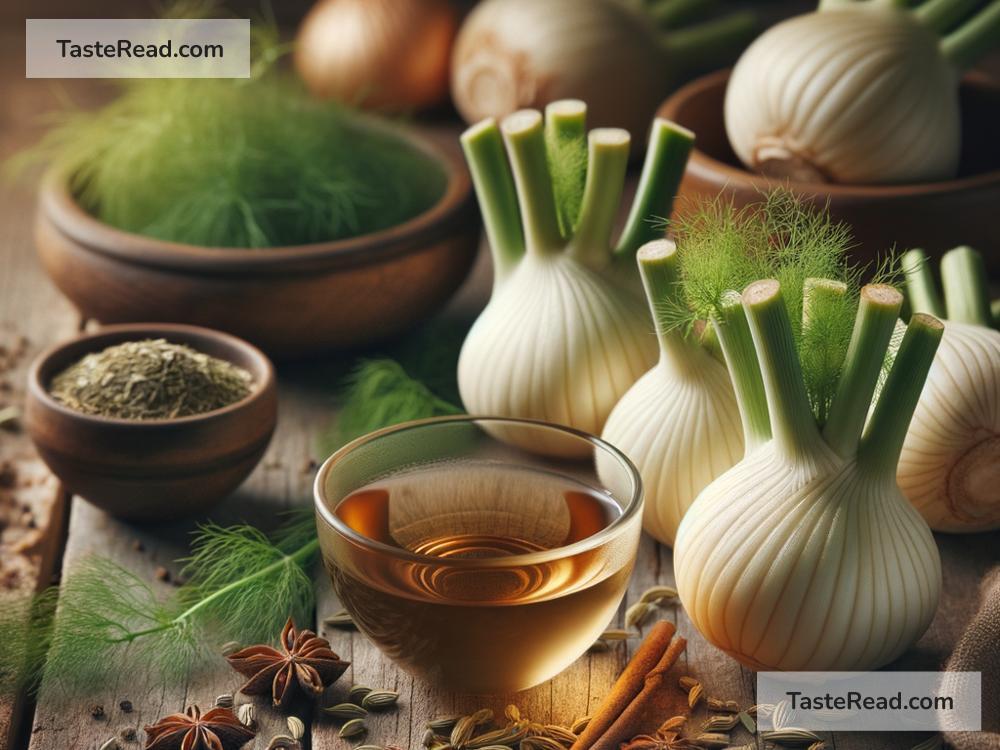The Surprising Role of Fennel in Digestion Remedies
When it comes to digestive health, many people reach for modern medicines to soothe discomfort like bloating, gas, or indigestion. But did you know that a simple ingredient from your kitchen—fennel—can work wonders for your stomach? Fennel has been used for centuries in traditional medicine to help with digestion, and it remains a favorite remedy in many cultures even today. Let’s explore how fennel can relieve digestive woes and why it deserves a place in your daily wellness routine.
What Is Fennel?
Fennel is not just a tasty vegetable that you might spot in salads or soups. It comes from a plant called Foeniculum vulgare, which belongs to the carrot family. It has a mildly sweet, licorice-like flavor and is often used in cooking to enhance dishes with its aromatic taste. But fennel is more than just a flavorful herb—it’s also a powerful medicinal plant. From its seeds to its bulb and leaves, every part of fennel has health benefits, especially for digestion.
In fact, fennel seeds are commonly used in herbal remedies because they contain natural compounds like essential oils, antioxidants, and fiber that aid digestion. These seeds are small, greenish-brown, and often found in spice jars. You might have already eaten them without realizing when they’re sprinkled on bread or added to teas.
How Does Fennel Help Digestion?
Fennel shines as a digestive superstar because it addresses several common stomach problems. Let’s take a closer look at how it works:
1. Relieves Bloating and Gas
Have you ever felt your stomach puff up after a big meal? This bloating can be uncomfortable and sometimes painful. Fennel contains compounds like anethole that relax the muscles in your stomach and intestines. When the muscles are relaxed, trapped gas and bloating are relieved.
Fennel seeds are perfect for this purpose. Many people chew them after meals to prevent gas buildup. It’s a smart trick because fennel encourages smooth digestion by reducing tension in your gut.
2. Eases Indigestion
Indigestion feels like a burning or heavy sensation in your stomach, often caused by rich, oily, or spicy foods. Fennel has carminative properties, meaning it prevents the formation of gas bubbles in your stomach. Drinking fennel tea or chewing its seeds can help give your digestive system a boost when food doesn’t sit well.
In addition, fennel can reduce the acidity in your stomach and promote smoother food breakdown, which is why many people rely on fennel remedies when they feel discomfort after eating.
3. Promotes Healthy Digestion
Fennel isn’t just for treating problems—it also helps keep your digestion running smoothly day to day. It’s rich in dietary fiber, which supports regular bowel movements and prevents constipation. Fiber acts like a broom for your digestive tract, sweeping out waste effectively so you feel lighter and healthier.
The essential oils in fennel also stimulate gastric juices, which are necessary for breaking down food properly. This means fennel helps your body process nutrients more efficiently while reducing digestive strain.
4. Soothes Stomach Cramps
If you ever experience stomach cramps or spasms, fennel can offer relief. Its anti-spasmodic properties relax the gastrointestinal muscles, easing pain caused by digestive hiccups. Pregnant women often use fennel as a natural remedy for dealing with stomach discomfort during pregnancy, but always consult a doctor first when trying new remedies.
How to Use Fennel for Digestion
Adding fennel to your daily routine is easy! It’s versatile, affordable, and available in many forms. Here are some simple ways to use fennel for better digestion:
1. Chew fennel seeds
Chewing raw fennel seeds after meals is one of the simplest remedies. They not only freshen your breath but also give your digestive system a gentle push to work efficiently.
2. Drink fennel tea
Fennel tea is soothing and easy to make at home. Just boil a teaspoon of fennel seeds in water, strain, and sip. It’s especially helpful if you’re feeling bloated or have eaten a heavy meal.
3. Add fennel to meals
You can incorporate fennel bulb or seeds into your cooking. Fennel pairs well with soups, salads, roasted vegetables, and even baked goods. It adds a touch of flavor while benefiting your digestion.
4. Use fennel in herbal blends
Many herbal teas and remedies combine fennel with other digestion-friendly ingredients like peppermint, ginger, or chamomile. Creating a custom blend can magnify the benefits.
Fennel in Traditional Medicines
Fennel has a long history in both Eastern and Western traditional medicine. Ayurvedic practices, for example, focus on fennel’s cooling properties to balance digestive heat and promote overall gut health. Indian households often keep fennel seeds handy as a remedy for indigestion and bad breath. Similarly, in Traditional Chinese Medicine, fennel is used to relieve trapped gas and stimulate warmth in the stomach.
Even ancient Romans, Egyptians, and Greeks used fennel for its healing powers. Its popularity across cultures proves that this humble ingredient has stood the test of time as a reliable aid for digestive troubles.
Conclusion
If you’re looking for a natural, inexpensive, and effective way to improve digestion, fennel might be the answer. It relieves bloating and indigestion, promotes regular bowel movements, and soothes stomach cramps—all while being easy to use and widely available. Chew the seeds, drink some tea, or add fennel to your meals, and you’ll be giving your digestive system some well-deserved support.
So, next time your stomach feels upset or uncomfortable, skip reaching for pills and give fennel a try. You’ll be surprised at how this small seed can make a big difference in your digestive health!


